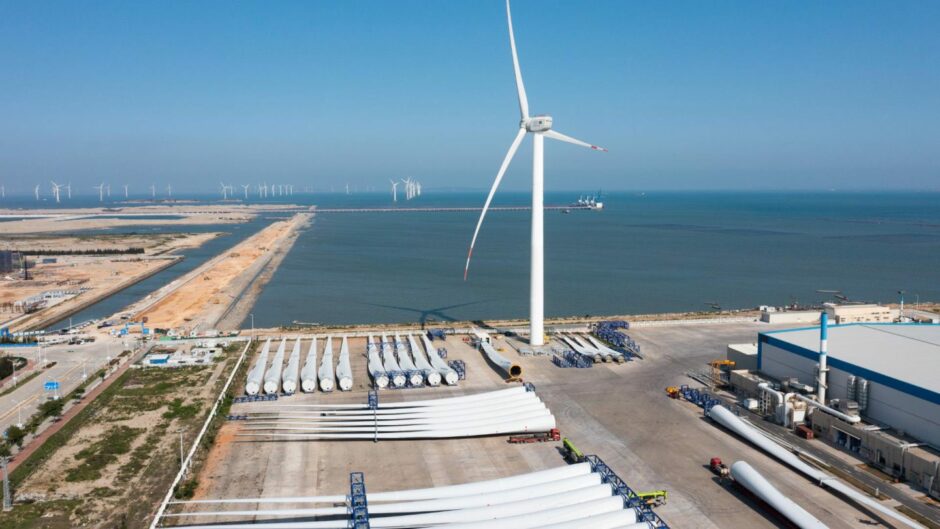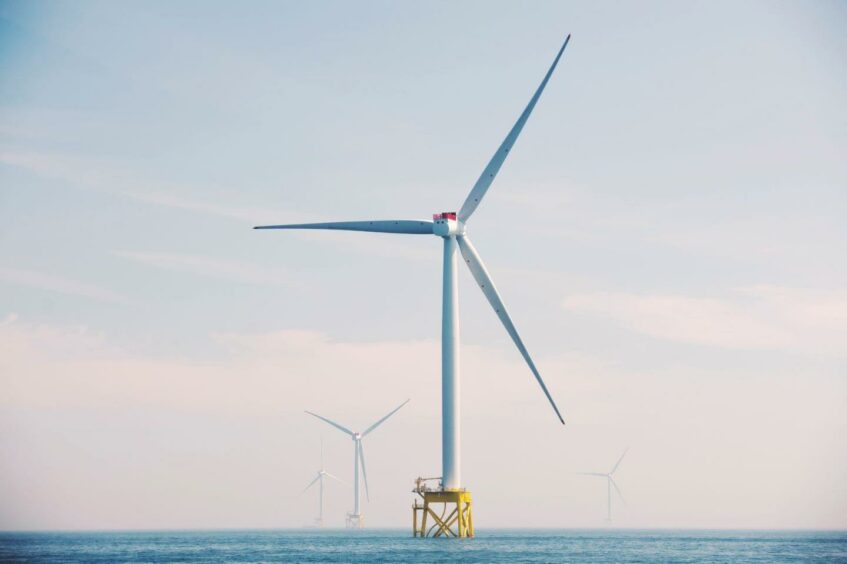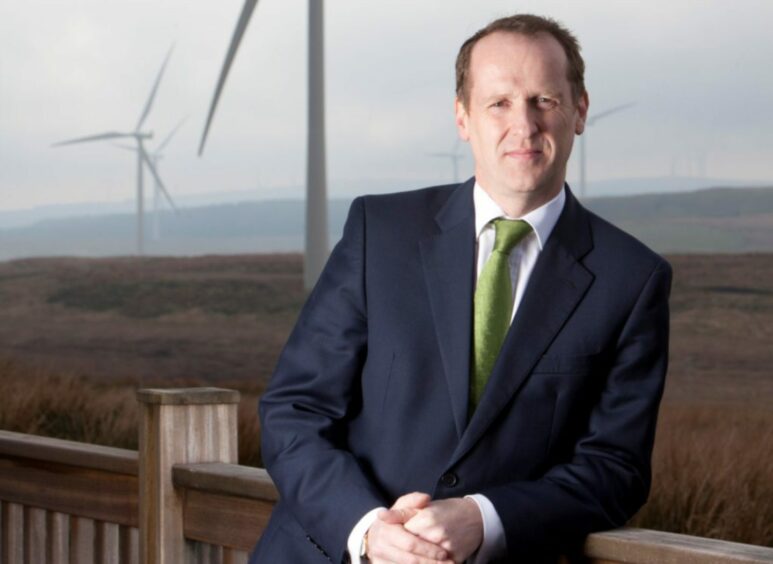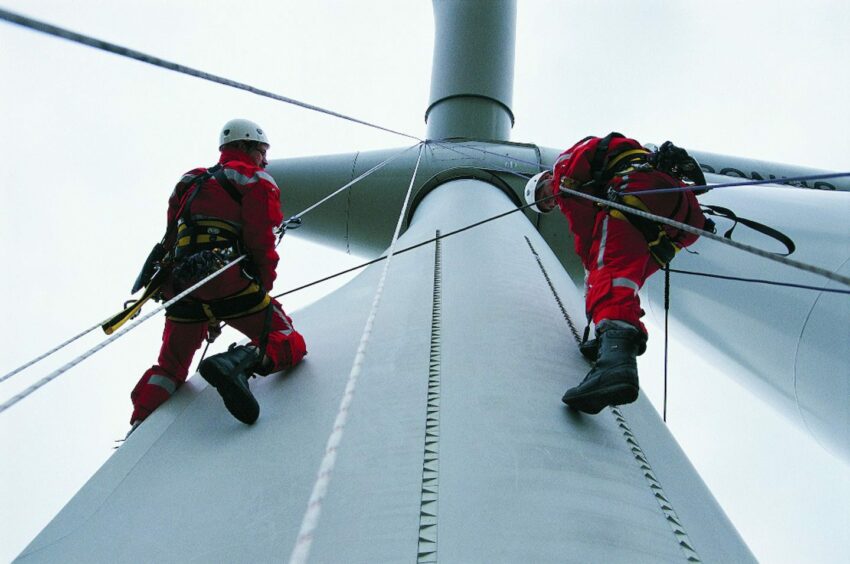
Keith Anderson, chief executive of Scottish Power, was on the radio the other day and I almost cheered.
I even almost forgave Scottish Power for declining to create a Scottish renewables supply chain when it made the strategic decision that importing turbines was best for the Iberdrola balance sheet. I’m sure that wasn’t Keith’s fault.
Anyway, now he is in the front line and he spelt out the message with admirable clarity. We know where we are and where we are supposed to get to by 2030, 2050 or whatever year you care to mention.
What we urgently need is a plan for how to get there and that does not exist.
Nor will it exist until the policy strands are pulled together into one great national effort.
Keith was talking UK-wide and the same applies within Scotland. If we are serious about this revolution we keep hearing about, leadership and clarity are required now.
As Keith Anderson put it: “We keep saying climate change is an emergency. I still don’t see us acting as if it was an emergency in terms of the policies and the frameworks and the speed. And that’s the mentality we need to have.”
He drew an analogy: “This country has shown in the past, when it treats something like an emergency, it can move really, really quickly.
“You saw what happened during the Covid crisis, the speed, the measures that were brought in, the vaccines that were brought to the market”.
But where is the vaccine to cure the curse of “government by silo” in which nothing is quite joined up?
The allocation of windfarm licences on a vast scale around the UK coast should have triggered the necessity for follow-through. Emergency sirens should have sounded and the route map put in place.
What does that involve? It must mean certainty that projects can happen rather than be bogged down in the Dutch auction of CfD.

It must mean grid connections will be in place. It must mean key ports accessing the investment need to keep working in this country. It must mean an army of workers being available, equipped with the necessary skills.
As it happens, I chaired a conference in Inverness recently about prospects for renewables in the Highlands and Islands at which the same messages emerged.
There is a lot going on. The potential for economic and environmental benefits is massive. But the jigsaw pieces are nowhere near to being joined up.
Skills were one of the big worries. By common consent, they don’t exist on anything like the scale that will be required.
Keith Anderson’s interview gained headlines because he called for the Government to relax immigration rules to allow more renewable energy workers into the country.
“We need to bring more people into this country to deliver what we have to deliver, without a doubt,” he said.
Maybe he is right and poaching skilled workers with relevant experience will be part of the mix but it would be depressing to think that it will be the most important one.
What about all these oil and gas workers who should be transitioning to green jobs if even a fraction of the political rhetoric is true?
A lot of people in Inverness were wondering what has happened to the “renewables passport” which should facilitate the transition for North Sea workers, without going back to school and starting again.
It was supposed to have launched by now. Lorna Slater, the minister who – rather worryingly – is in charge of it told Holyrood that it has been delayed till the third quarter this year.
“We are progressing with a mapping exercise – mapping the alignment of standards – which is a big piece of work that will bring together in one place the standards from multiple offshore sectors”, she told MSPs.
That doesn’t quite sound like an emergency approach but we await with interest.
There will be plenty of work for welders and other trades. It will become a highly competitive market, throughout the UK and abroad.
Who, I wonder, is going out to sell that message in schools and colleges –“ train for renewables and you will have well-paid work for life”?
In looking for precedents for what happens when the state puts its weight behind an emergency, Keith Anderson might also have looked back to the 1970s when the government responded to North Sea Oil by setting up the Offshore Supplies Office.
With few formal powers, they strongarmed the industry into creating a Scottish and UK supply chain which soon accounted for 70 per cent of hardware.
Is anyone doing that now? Has any target been set, or a strategy for how to achieve it?
I see all this in microcosm at home in Lewis which now faces the prospect of three large onshore wind farms, two offshore ones and an interconnector, all within the next few years.
A few billion of investment and hundreds of jobs, maybe more. Who is going to fill them? Where will they live? How can local benefit be captured?
Here, the local council and HIE have called together a Major Projects Forum in an effort to bring order to it all. That’s positive.
The same approach is needed on a national scale. The jigsaw will not put itself together. Both Scottish and UK governments should have a Minister for Energy Planning with extensive powers and doing nothing else.
If we really are facing an emergency, it’s time to declare it, mean it and act accordingly. Like Keith Anderson, I really want to see that route map.
Recommended for you

 © Chris James
© Chris James © Supplied by Steve Brown / DCT Me
© Supplied by Steve Brown / DCT Me © Supplied by RTN
© Supplied by RTN